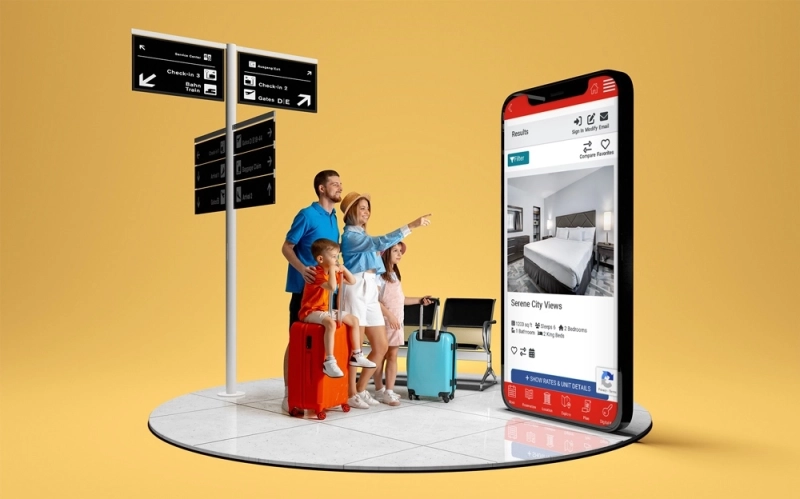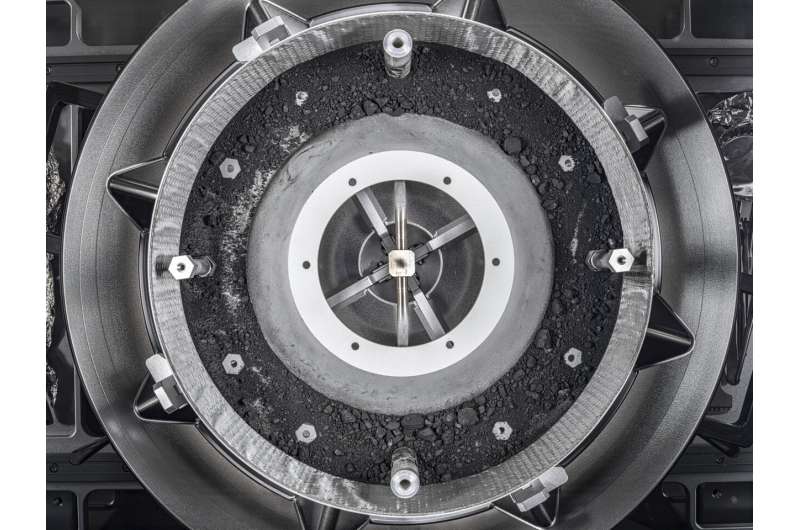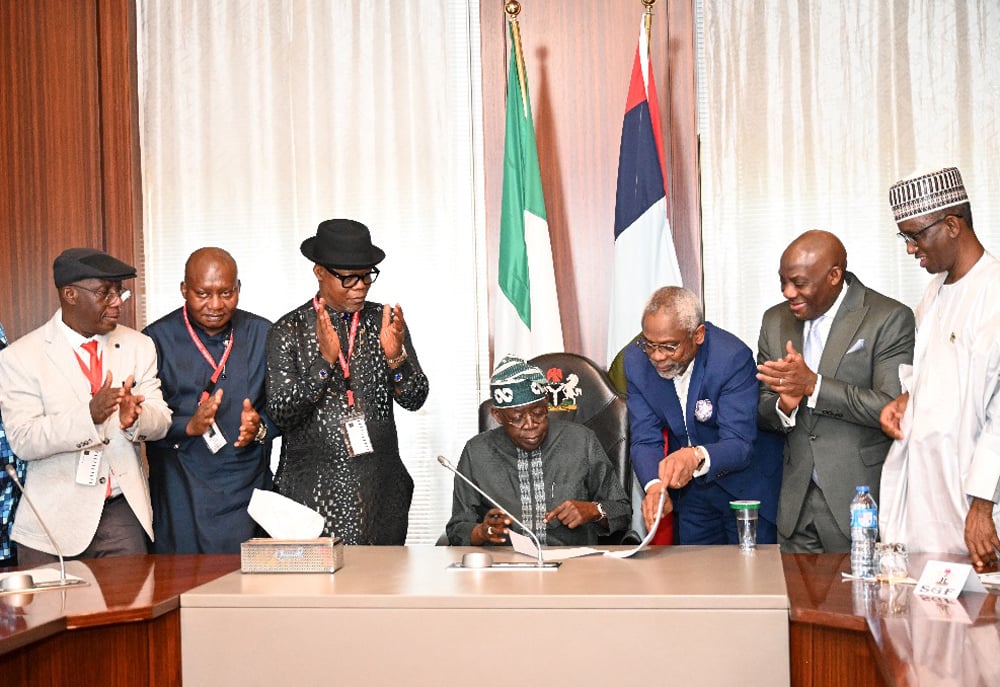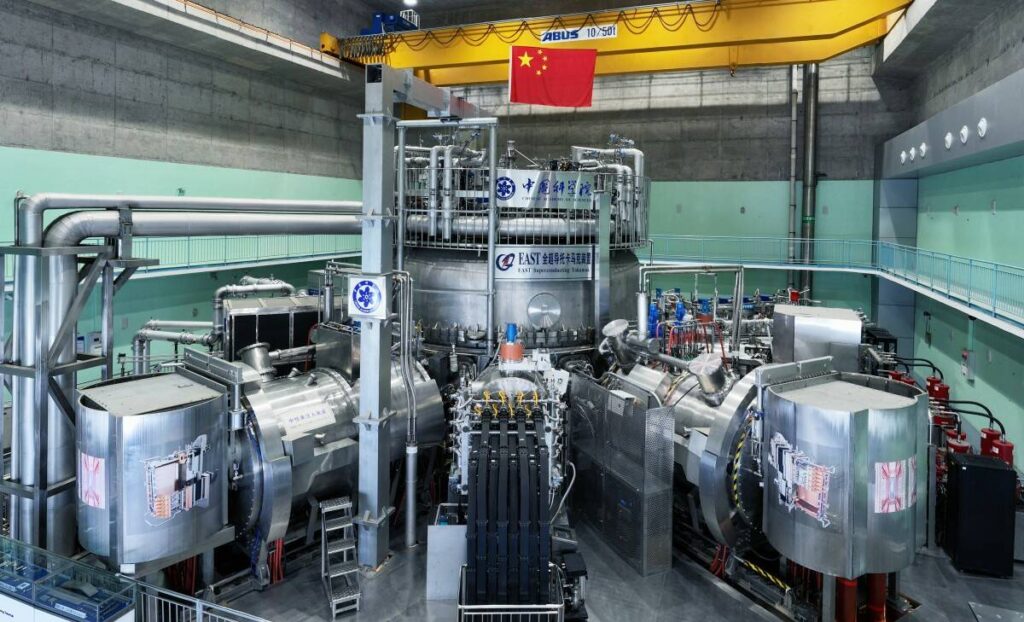Blog
What is Hotel Booking Software?

Technology tamfitronics
Hotel booking softwarealso known as hotel reservation software, is any technology that enables hoteliers to accept direct bookings through their website and other direct distribution channels. It is an external interface where guests schedule their stay, choose rooms, and make payments, without contacting the hotel directly. Behind the scenes it manages rates, availability, and guest reservations, passing this information from the hotel to the guest and vice versa.
Hotel booking software is important because it boosts efficiency and accessibility. Your booking software streamlines the reservation process, allowing guests to book rooms anytime without staff oversight. It cuts out middlemen, ensuring the best rates for guests and higher hotel revenue.
It also prevents overbooking and keeps everything in sync, allowing guests to tailor their stay preferences and enhance their experience.
Whether a boutique bed and breakfast or a 500+ room resort, every hotel benefits from easy-to-use booking software. Properties still relying on phone or form bookings are losing revenue, especially amongst younger travelers who are less likely to reach out directly to the hotel.
What is hotel booking software?
Hotel booking software is a suite of tools that streamline the booking process for hotels. They take online reservations by letting guests conveniently book directly from their website or other direct channels. This online interface displays room availability, types, and rates in real time through a two-way integration with the hotel’s property management system. The booking software also handles the payment process, by providing a secure payment page where guests can pre-pay part or all of their reservation.
How does hotel booking software work?
Hotel booking software is the bridge between a guest’s desire to stay at your hotel and their ability to book that stay. Your booking engine is the web-based interface they interact with to do so.
When a potential guest visits your website, they should be directed to the booking engine when they click BOOK on the links strategically placed throughout your site. The guest provides their dates of stay and the booking engine then surfaces rooms and rates available on the dates selected. This information is sourced directly from the hotel’s property management system. If the hotel is using a revenue management platform, the specific rates are managed and optimized in either that system or in the PMS itself. A secure, seamless connection ensures that this data is shared in real time, preventing overbooking and cancellations.
Once the guest books directly, their stay details, including up-sells promoted by the booking engine are sent back to the PMS. The information, including payment details, is stored until the day comes when the guest arrives, and it is needed.
A robust, seamless booking engine is necessary to ensure that this entire process, syncing data, showing rates, and so on, happens near instantaneously for the guest. Slow or confusing booking engines will lose bookings.
Why do hotels need booking software?
Now that we understand what hotel booking software does, we can also unpack what makes it so important to hotel revenue and operations.
Increased direct bookings
A well-implemented booking engine increases the likelihood a guest will book directly with you. This decreases your overall number of third-party bookings and your reliance on OTAs to drive occupancy. Decrease the high commission bookings from OTAs and increase direct bookings, which come at a lower cost to you.
Enhanced guest experiences
An online booking engine is a convenient way to book 24/7, while promoting relevant upsells and promotional offerings. Most guests prefer the convenience and speed of making a reservation via a booking engine, compared to a form or needing to call into the hotel.
Data-driven decision making
Gain insight into booking trends to better understand your guests and booking trends. Understand what time of day, week, or month guests typically book, as well as how far in advance guests’ book. This allows you to optimize rates and sell relevant deals to boost revenue and occupancy.
Competitive advantage
Guests now assume they should be able to easily book online. Stay ahead of hotels with outdated software while also keeping up with guest expectations. A fast, easy-to-use booking engine can put you ahead of price-conscious guests who are comparing rates and trying to understand the options available to them.
Why are direct bookings important to a hotel?
Direct bookings are reservations made directly with the hotel, with no intermediary such as a traditional travel agent or a travel website. While direct bookings used to be made via phone or walk-ins, these days most hotels rely on their website as their primary direct booking channel.
Most hotels want to increase their direct bookings. If you’re looking to increase your direct revenue, here are 10 Hotel Direct Booking Strategies that Work. This method of booking is important to hotels for many reasons, including:
Cost Savings
Reservations made through online travel agencies come with high commission fees, often 15 to 30% of the total booking value. Direct bookings, depending on your booking engine, have a much lower cost.
Ownership of Guest Data
In this day and age, guest data is a valuable commodity. Third-party bookings won’t provide all the details, because in their mind, if a guest booked through their site, that is their new user as much as your guest. And they’ll be marketing to that user in the future – possibly even competing hotels!
On the other hand, when a guest makes a reservation on your booking engine, you can collect valuable guest information (email addresses, preferences, history) for use in your own marketing campaigns in the future.
Building Guest Relationships
When you own your guest data, you can start building a long-term relationship with your guests. Encourage loyal guests with relevant discount codes they can use in the booking engine, available exclusively for repeat visits.
Increased Revenue
Use exclusive packages, promotions, and price incentives to boost RevPAG (revenue per available guest). When implemented correctly in your hotel booking software, these add-ons feel intuitive and relevant, rather than pushy or unnecessary.
Control Over Brand Experience
Create a consistent brand experience everywhere on the web, so guests know when they’re on your sites and not a third-party or unaffiliated website. Your booking engine should match your website as well as your branding on property, and ideally remain on the same URL as your hotel website.
Loyalty Programs
Once you’ve built a base of loyal guests, you can create a loyalty program in which they collect points or receive special discounts, all bookable exclusively through your website.
Flexibility and Customization
Direct bookings give you flexibility you do not have with third-party sites, that may create their own packages and offers. This can hurt your bottom line and make that guest more loyal to the third-party than to your own site. However, with direct bookings you can create your own special offers and packages.
Reduced Dependency on OTAs
Create a more balanced distribution strategy. Overly relying on OTAs means that you’re paying costly commission fees and losing guest data – see above for more on why that’s harmful to your hotel’s success! OTAs can be a great way to get a first booking, but you want their second booking to be directly with you.
Better Insights
Make data-driven decisions when you understand booking patterns, guest preferences, and market trends. These insights can help you understand booking trends at your hotel, so you can create a strategy to drive more revenue. For example, if most guests are booking last minute – encourage booking in advance with competitive rates!
Hotel booking software must-have features
If you’re researching a booking engine software for your hotel, here are nine of the essential features that are an absolute must:
- User-Friendly Interface:
- A hotel booking system should offer an intuitive and easy-to-navigate interface for guests. Clear menus, straightforward booking steps, and visually appealing design enhance the user experience.
- Why it matters: A user-friendly interface encourages more bookings and reduces the risk of abandoned reservations.
- ADA Compliance:
- Your booking engine software absolutely must comply with web accessibility best practices. This means providing accessible features for users with disabilities, such as alt text for images, keyboard navigation, and compatibility with screen readers.
- Why it matters: ADA compliance promotes inclusivity and avoids legal issues.
- Channel Management Integration:
- The software should seamlessly integrate onto your hotel website, as well as whatever Channel Manager you’re using to manage online travel agencies (OTAs), and global distribution systems (GDS). This integration ensures consistent availability and prevents overbooking.
- Why it matters: Efficient channel management maximizes occupancy and revenue.
- Real-Time Inventory Updates:
- Instantly updating room availability across all platforms is essential. When a guest books a room, the inventory in your PMS should reflect the change immediately to prevent double bookings.
- Why it matters: Real-time updates prevent guest dissatisfaction and operational headaches.
- Secure Payment Processing:
- Robust encryption and compliance with Payment Card Industry Data Security Standard (PCI DSS) are vital. Guests need assurance that their credit card information is safe during the booking process.
- Why it matters: Trustworthy payment processing builds confidence and encourages bookings.
- Reporting and Analytics:
- The software should provide detailed reports on bookings, revenue, occupancy rates, and guest behavior. These insights help you make informed decisions and optimize your business.
- Why it matters: Data-driven decisions lead to better performance.
- Upselling and Add-On Capabilities:
- Offering guests additional services or upgrades during the reservation process boosts revenue per guest. The software should allow upselling of room types, add-on experiences, meals, and other extras.
- Why it matters: Upselling enhances the guest experience and increases profits.
- Guest Messaging Software Integration:
- Integrating with guest messaging platforms allows personalized communication relevant to a guest’s upcoming stay, tailored to their needs and your hotel brand.
- Why it matters: Personalized communication improves guest satisfaction, loyalty, and the lifetime value of each guest.
- Integration with Website:
- The booking software should seamlessly integrate with your hotel’s website. Consistent branding, look, and feel across all platforms reinforce your hotel’s identity.
- Why it matters: A cohesive online presence enhances trust and recognition.
How to choose the right hotel booking software
There’s a lot to consider when weighing what to look for in hotel booking software. In addition to all the features above, consider the following when it comes to your hotel:
- Hotel size and type
- Budget
- Specific operational needs
- Required integrations (PMS, payment gateways)
- Vendor support and reputation
Frequently asked questions about hotel booking software
What is hotel booking software, and how does it work?
Hotel booking software is a solution that allows hotels to accept bookings on their website. It displays real-time rates and availability, syncing this data from the hotel’s property management system. It manages payment processing so guests can complete their booking online.
What are the core features of hotel booking software (reservations, payments, etc.)?
The core features of booking software are reservation management, rate management, channel integration, payment processing, and reporting tools. For guests, booking software also must clearly and easily display which rooms are available on selected dates.
How does booking software integrate with my hotel’s website and PMS?
Hotel booking software can either be embedded directly on your hotel website or linked to from anywhere on your site. It integrates with your hotel PMS via an API data exchange to automate the availability and rates from the PMS to the booking engine, and vice versa.
Can I accept online payments securely with hotel booking software?
Yes, reliable hotel booking software ensures secure payment processing with PCI-complaint technology that encrypts financial data and meets the highest standards of payment gateway security.
Can hotel booking software help me manage overbookings and availability?
With a two-way sync to your PMS and CRS or Channel Manager, your hotel booking software prevents overbookings and manages availability because it is always using real-time, accurate data on direct and indirect channels.
How do I choose the right booking software for my hotel’s specific needs?
Selecting the right hotel booking software involves understanding your hotel’s needs and weighing them against vendor features. When searching for a booking engine, understand your hotel’s needs – what integrations you need, reports you want to see, how the booking engine works with your property or properties. Find hotel booking software that meets all of those needs, with the ability to scale to your growth and support you with proactive customer service.
What factors should I consider when comparing different hotel booking software?
When assessing hotel booking software, prioritize an intuitive, mobile-first interface, reporting and business intelligence tools, as well as integrations with your PMS and CRS.
Can I customize the look and feel of hotel booking software to match my hotel’s brand?
Your hotel booking software can and should match your branding, including your brand colors and hotel logo. Using consistent branding across your website and booking software will increase customer trust that they are on the right site to book with the hotel itself rather than a third-party.
Does hotel booking software offer any upselling or cross-selling features?
Hotel booking software promotes upsells and cross-selling by prompting guests to add on features where relevant, in an unintrusive manner. Promote food add-ons, amenities, services, or local experiences throughout the booking process to increase revenue on every reservation.
Can I offer special promotions or discounts through hotel booking software?
You can offer special promotions and discounts through your hotel booking software such as add-ons, seasonal deals, promotional discounts, as well as group rates available to customers using a specific pre-set code.
Does hotel booking software provide any reporting or analytics features?
Your hotel booking software should provide you with detailed financial reporting, occupancy and revenue analytics, as well as the ability to integrate with Google analytics to measure web traffic and conversion metrics.
Request a hotel booking software demo
Launch a booking engine that can do all this and more. The Fuel Booking Engine promotes upsells, provides real-time PMS data, and integrates with your website and analytics. As a standalone or multi-property reservation software, the Fuel Booking Engine scales to fit your needs.
For hoteliers seeking a booking engine that ticks all the boxes, consider the Fuel Booking Engine. Designed to meet the demanding needs of modern hotels and hotel groups, the Fuel Booking Engine provides a user-friendly interface, seamless integration, real-time updates, and responsive customer support. Elevate your hotel’s online presence and streamline the booking process with the Fuel Booking Engine.
Discover more from Tamfis Nigeria Lmited
Subscribe to get the latest posts sent to your email.















 Hot Deals
Hot Deals Shopfinish
Shopfinish Shop
Shop Appliances
Appliances Babies & Kids
Babies & Kids Best Selling
Best Selling Books
Books Consumer Electronics
Consumer Electronics Furniture
Furniture Home & Kitchen
Home & Kitchen Jewelry
Jewelry Luxury & Beauty
Luxury & Beauty Shoes
Shoes Training & Certifications
Training & Certifications Wears & Clothings
Wears & Clothings




